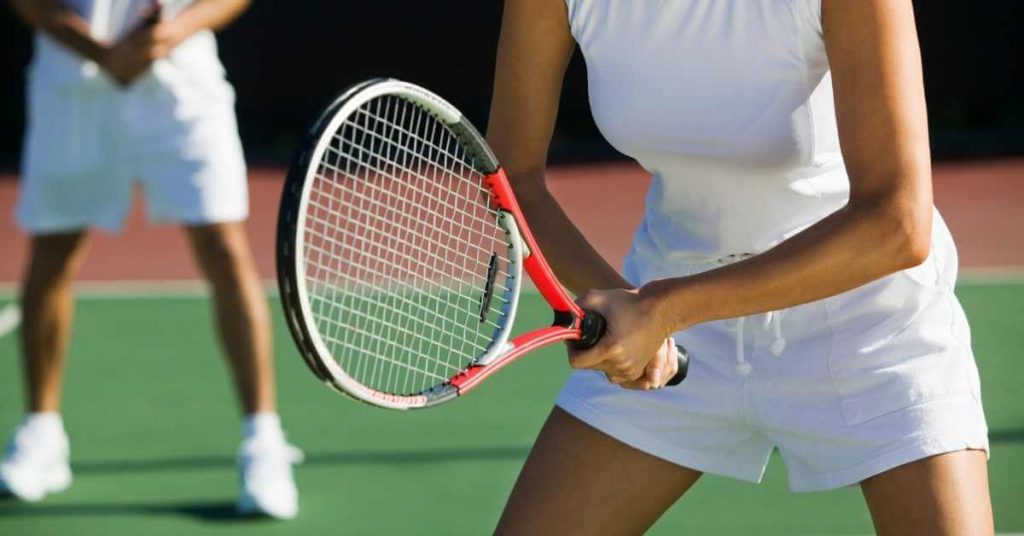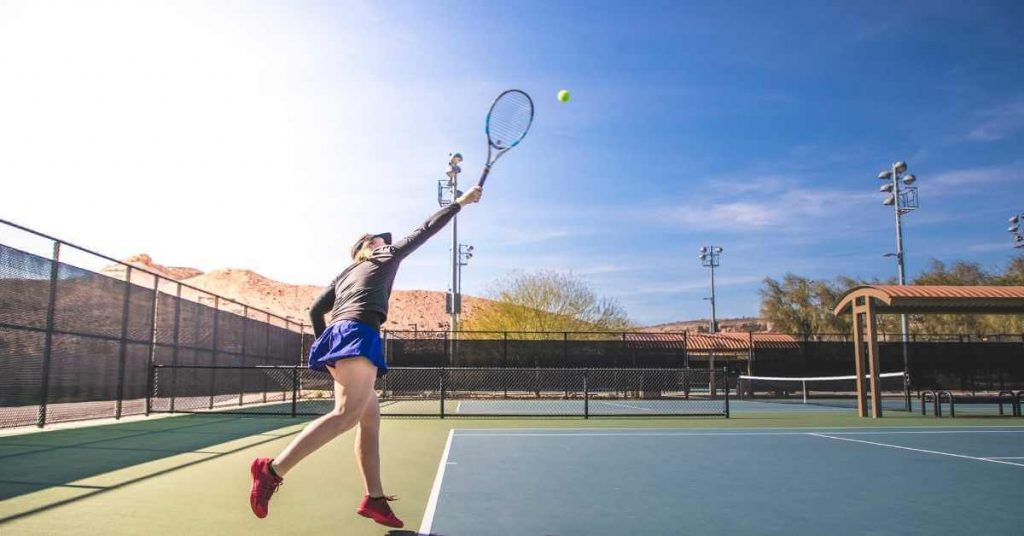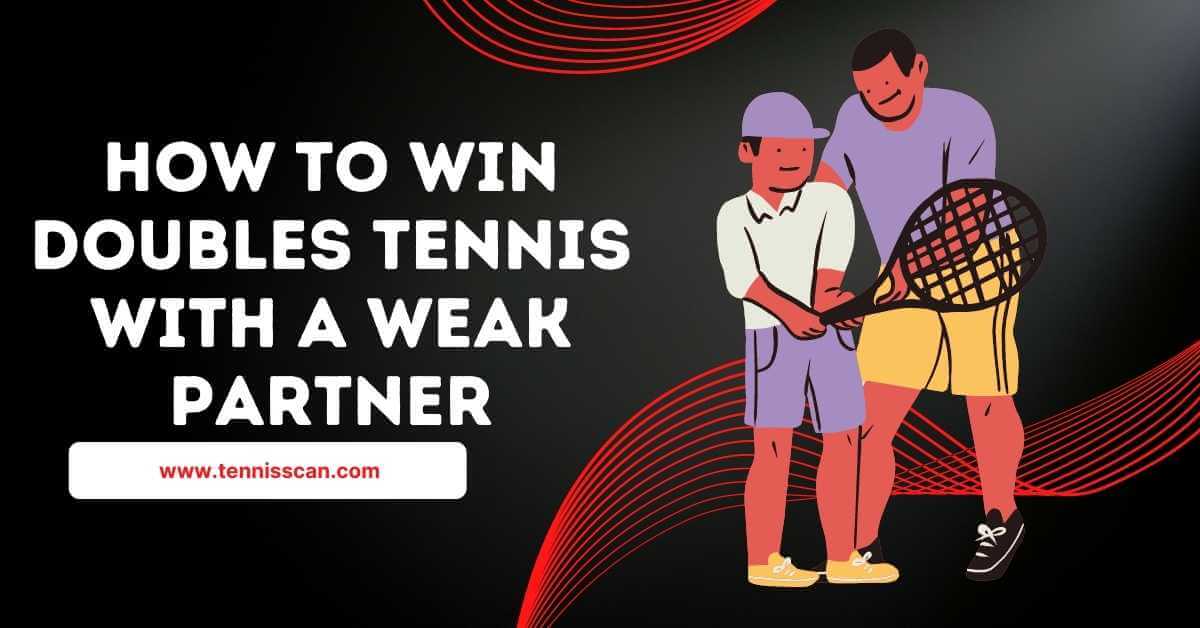Regardless of what your skill level is, you’ve almost certainly been partnered with a player who is less skilled than you. I’ve lost my career playing doubles and have been in this situation numerous times. It’s natural to become irritated in this circumstance, but learning how to keep your cool is essential if you want to win when competing with a lesser partner.
When playing doubles with a weaker partner, you must first develop a positive mindset. Furthermore, given how poorly your partner is playing, encouragement is essential for getting the most out of him or her. I’ll show you how to be an excellent doubles partner to get more out of whomever you play with.
I’ll show you the essential qualities of a good doubles partner, and also specific words used with your partner while they’re not playing well so you can help them improve.
Following that, we’ll go over the qualities of a lousy doubles partner and why their actions are ineffective.
Then we’ll wrap off with a few pointers on how to be a successful tennis doubles partner.
1: On the ad side of the Tennis Court, you should play
Because many crucial tennis points, such as 30-40, 40-30, will be determined on the ad side of the court, it is a great idea for the better player to play on the ad side. I’ve also discovered that the majority of weaker opponents love to play on the deuce side since they like to hit their forehands and have weaker forehands.
2: Serving should be done by the stronger player
The stronger player, in my perspective, should always serve first because if you maintain your service, it will give your partner more credibility when it comes time for them to serve. If the weaker partner serves first and immediately loses, it could have a greater effect on the rest of the match than if they drop their serve in the course of a set. It’s also crucial to get off to a strong start in the first set, as it will boost your partner’s morale.
3: To make up for the weaker player, don’t overplay
When people play tennis with a weaker partner, one of the most typical mistakes I notice is that they try to remedy the problem by striking through it, such as striking strong serves or constantly aiming for groundstroke winners. This is a formula for catastrophe, and you’ll only help your opponents by hitting the ball out. Rather, try to play within yourself and avoid making any more mistakes than normal.

4: Offer your partner supportive words
Because so much tennis is played between the ears, this is perhaps one of the most significant things you can do to improve your doubles game. Your aim should be to maintain your partner’s spirits up by complimenting them on a decent shot, not dwelling on their bad shots or mistakes, and encouraging them if you’re behind in a game.
5: When the weaker partner is playing, play two back
When playing with a lesser partner, I’ve noticed that this is a smart approach to employ because they frequently have slow serves that your competitors can exploit. If the stronger player stays at the goal, they are likely to be exposed and easy targets for their rivals, who could hit a passing shot through them or hit an ambitious ball right at the stronger player at the hoop. When their partner serves, the stronger player can reduce the risk of failure by returning to the sideline.
Be Focused:
When you’re playing with a weak partner, it’s tempting to get caught up in how bad they’re playing vs. what you’re doing to assist them. It’s important to realize to keep control of the variables under your control. When playing doubles, the most important factor to consider is how you play individually.

When you become overly focused on your partner’s work, you lose sight of what you’re doing to perform successfully. As infuriating as it may be, the greatest way to assist a weak partner is to do really well yourself. Instead of seeing this as a threat, consider it a chance. This is an opportunity to play with no stakes and no obligations.
Being Positive:
It’s not a difficult task. Everyone understands that it’s simple to execute well when you have other people’s encouragement. Negative behavior from your partner can only lead to poor performance from him or her. Negative sentiments about a partner show up in your dialogue and body language, even if you aren’t aware of it.
You must be optimistic, not just appear positive, in order to play well with a weak partner. It’s much more difficult to fake positivity than it is to truly be positive, so go to the bottom of the problem. Being positive is easier than it sounds, so use these suggestions to help you get there.
Vision
If any team wants to succeed, it must adopt a plan that showcases the doubles team’s talents. When a doubles team contains two players who are at multiple stages, though, developing a winning plan is a little more difficult. This is not a “one size fits all” shape since each player has advantages and weaknesses. Therefore, I believe these two pieces of advice will benefit many players who have difficulty playing with inferior partners.
Related Posts You Will Enjoy
Tennis Workouts
Find 10 Best Tennis Coach Gifts
Calories Burned Playing Tennis Calculator
Lobster Tennis Ball Machine Review
The Better Player should be highlighted.
It’s straightforward, but it shouldn’t be neglected. You should make certain that the plays you’re selecting will help you win. That implies devising a plan that makes it difficult for your competitors to target your partner’s flaws. For example, if my partner is going and has a nice return, but we’re losing points because he’s trapped at the perimeter.
I’ll ensure that when he hits his strong return, I’m diving on the first ball or at the very least trying to be proactive. In this scenario, being extremely aggressive to hit a ball, my specialty is preferable to being overly quiet.
The Strengths of the Weak Partner should be highlighted.
It’s vital to realize that, even if your partner doesn’t do everything as well as you can, they have their own different strengths and flaws. To succeed as a team, you must help your partner succeed as an individual. You must ensure that your partner’s skills are highlighted and utilized properly.
